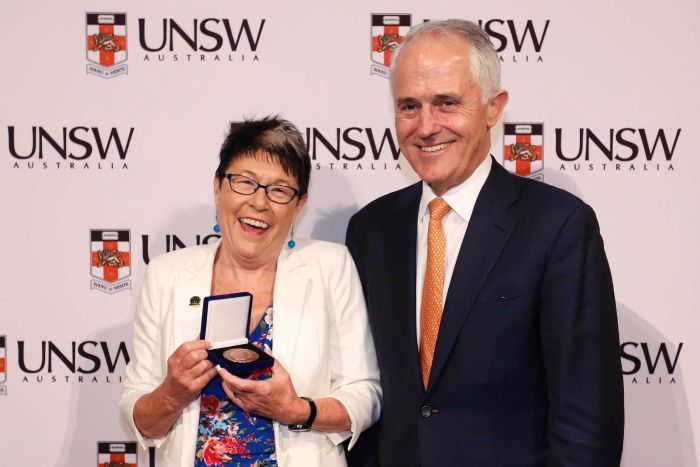Inaugural Mental Health Prize winner to use award to challenge misconceptions
Posted
The recipient of the inaugural Australian Mental Health Prize says more needs to be done to address the links between physical and mental healthcare.
Last night the award was presented to Australian College of Mental Health Nurses chief executive Kim Ryan by Prime Minister Malcolm Turnbull.
The Canberra-based advocate, with more than 25 years' experience in the mental health sector, was recognised for her promotion and support of mental health nursing.
Ms Ryan said she was "overwhelmed" by the win, and hoped to use the award to challenge the misconception that patients' mental and physical conditions should be treated separately.
She said part of the answer was to ensure all nurses were "competent and confident" in dealing with all problems experienced by patients.
"A lot of people, they think it's either physical health or it's mental health," she said.
"People that have coronary heart attacks, they have an increased rate by three per cent, of suicide within the [following] 12 months.
"So we actually need the nurses that are working in coronary care to understand that there are mental health implications associated with the work that they do."
The prize was established by the University of New South Wales and a group of prominent Australians, headed up by media personality and businesswoman Ita Buttrose.
"Mental health nurses are often at the frontline when it comes to working with people who experience mental health issues in the community," Ms Buttrose said.
"Kim's work demonstrates the enormous difference that specially-trained mental health nurses can make in the recovery of people with mental illness."
Prize boosts awareness of mental health
Ms Ryan said the prize increased much-needed attention for mental health work.
"We still have a lot to do to reduce the stigma associated with mental illness, and I think having opportunities like this to showcase what people have done in the field also provides the community with better understanding," she said.
"We have people who have ... complicated mental health conditions that are dying 25 years earlier than the rest of the population.
"Unless we actually get people to understand the importance of the work that people in the field of mental health do, we're not going to address the life expectancy gaps for those people."
Topics: mental-health, health, awards-and-prizes, community-and-society, university-of-new-south-wales-2052, sydney-2000, nsw, canberra-2600, act, australia









